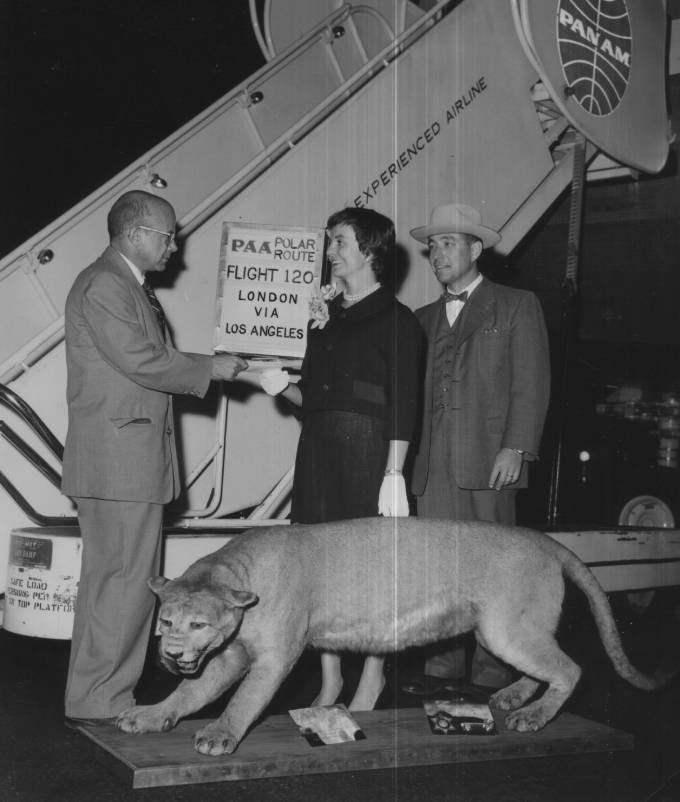When John Steinbeck died on December 20, 1968, Jimmy Costello wrote his obituary for the newspaper that was then called the Monterey Peninsula Herald. Jimmy was the paper’s city editor at the time, so maybe he assigned himself to do the job.
In any case, it was a good choice. Jimmy knew John well. They had been friends. They had taken part together in at least two great adventures, one darkly tinged.
The first—the darkly tinged one—I heard directly from Jimmy. One night, after a drink at Gallatin’s, a restaurant-bar in downtown Monterey just a block or two from the Herald newsroom at that time, we took a walk and passed the old San Carlos Hotel, now gone.
It stirred memories in Jimmy. There was a Monterey party, he recalled, in the early 1930s, and John and his first wife Carol showed up at this party, celebrating something good that had happened with John’s writing. They were in a happy mood, but that changed when a young woman, perhaps impressed by Steinbeck’s growing fame, played up to John at the party. Carol unsurprisingly reacted negatively and began drinking. When she became what John judged as drunk, he found Jimmy and asked him to help take Carol away.
Jimmy agreed, assuming John would take Carol home to the Steinbecks’s Pacific Grove cottage. Instead, John said they would walk Carol to the Hotel San Carlos, get her a room, and let her sleep it off. Jimmy was a short man, 5’6” at most, and Steinbeck was a six-footer. To this day I imagine them supporting Carol while walking her down Calle Principal to the San Carlos, Carol tilting in Jimmy’s direction.
It was late and the hotel lobby was nearly empty, moths circling the lights, remembered Jimmy, who supported Carol while John got a room. Jimmy thought they would take Carol to the room and put her to bed, as John had said, but John had other ideas. After they got Carol onto the elevator, John pressed the room key into her hand, pushed the button for the second floor, then took Jimmy by the arm and, as the elevator doors closed behind them, left with Jimmy to return to the party.
Later Jimmy came back to the hotel alone, found Carol still on the elevator, passed out, and took her up and put her to bed. I can’t recall his saying either way, but I don’t think he went back to the party. Years later he remained perplexed by what happened. He liked Steinbeck very much, but not that night.
Puma Story Has Happier Ending than that Monterey Party
The other John Steinbeck incident involving Jimmy Costello that sticks in my mind was told to me not by Jimmy but by his son, also Jim Costello—historian, writer, school teacher, and former mayor of Pacific Grove. It happened years later, when Steinbeck had moved East and was traveling in Europe and the United Kingdom. After meeting members of the British Royal Navy, Steinbeck learned that the anti-aircraft vessel Puma did not have a mascot—in the case of other frigates, the mounted heads of the big cats the ships were named for. Steinbeck claimed Monterey County had plenty of pumas. If that were true, wouldn’t the Royal Navy rather have a whole stuffed puma than just a head—especially if the stuffed puma were accompanied by a live one?
Like the night of that party, John turned for help to Jimmy, who saw to it that a stuffed puma was found and flown to England, followed soon after by a live specimen picked up in Big Sur, put in a cage, and driven to the airport in the bed of a pickup truck. This led to various adventures and heartbreaking moments—the puma was given a name, Flora—and Jimmy took the cat’s welfare personally, just as he had Carol’s.
Years later, I wrote short stories about both incidents, of course inventing a bit along the way. But Jimmy’s son remembers other Steinbeck anecdotes as well. One involved coming home from Monterey High School one afternoon and finding an imperious-looking French poodle sitting on the sofa in the living room, staring at this kid carrying books coming through the front door. “It was Charley,” Jim recalls. “John was in Monterey researching what would be Travels with Charley. He was sitting at the dining room table with my parents. They were talking and having a good time. Charley seemed perfectly at home.”
Jimmy Costello had talked about writing a book on Steinbeck in retirement. But he was pushed into retirement before he was ready and it broke his heart and he died shortly thereafter. It would probably have been a hell of a book—likely anecdotal—and truthful. Jimmy always told the truth. His wife, Nancy, outlived him by many years and became a local legend. In an old pickup, she would collect food contributed by donors or thrown out by grocery stores, as well as clothing and other necessities, and drive into the Salinas Valley delivering to poor families, usually fieldworkers. Friends and supporters chipped in gas money and helped out with truck repairs. Nancy Costello did her important work almost to the day she died. Maybe this work was inspired in part by John’s writings. She was certainly worthy of one of his stories.
The Monterey Peninsula Herald is now the Monterey County Herald. Jimmy Costello’s son Jim visits Pacific Grove often from his retirement home up in Port Townsend, Washington. There the Western Flyer—the commercial fishing boat that Steinbeck made famous—is being refurbished for its own important work. When it returns to Monterey Bay as a floating ecology classroom, it will be coming home, too.
Archival photograph of Jimmy Costello (left) delivering stuffed puma courtesy Jim Costello.



As always, Steve Hauk has written a delightful article about fascinating people. My husband Kevin and I were lucky enough to know Jimmy Costello, too, so it was also a nice walk down memory lane. Thanks!